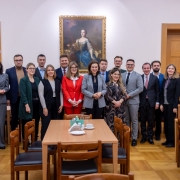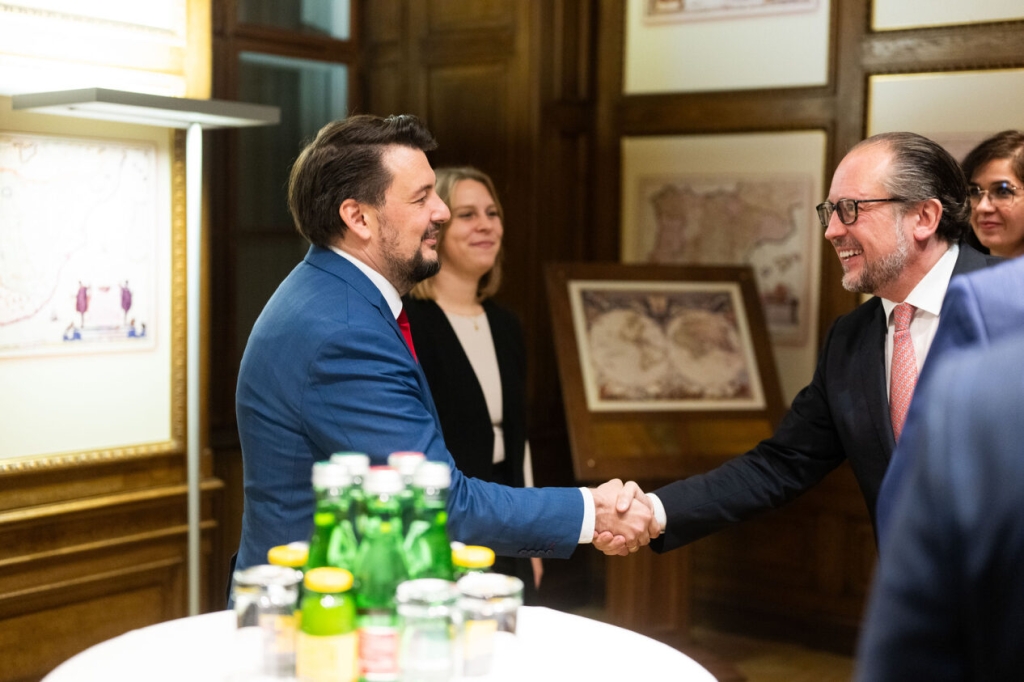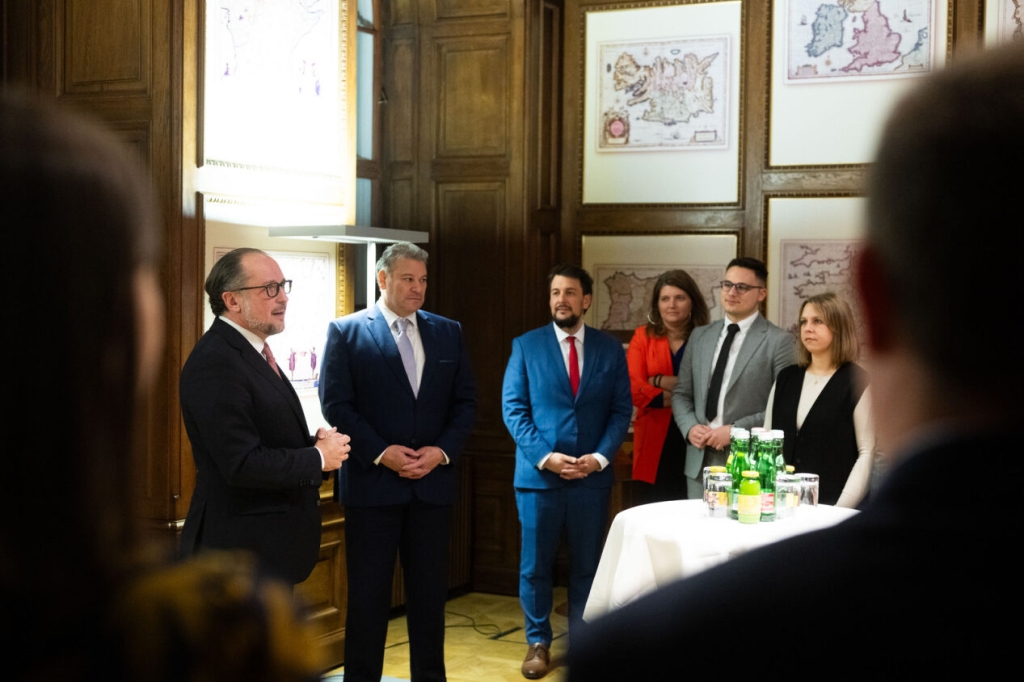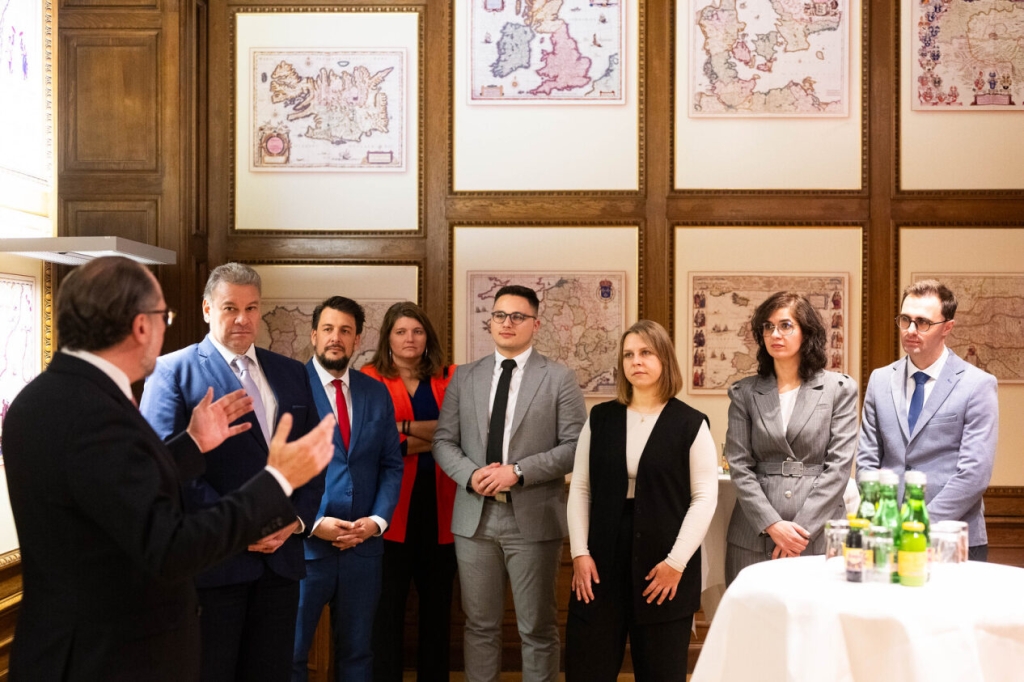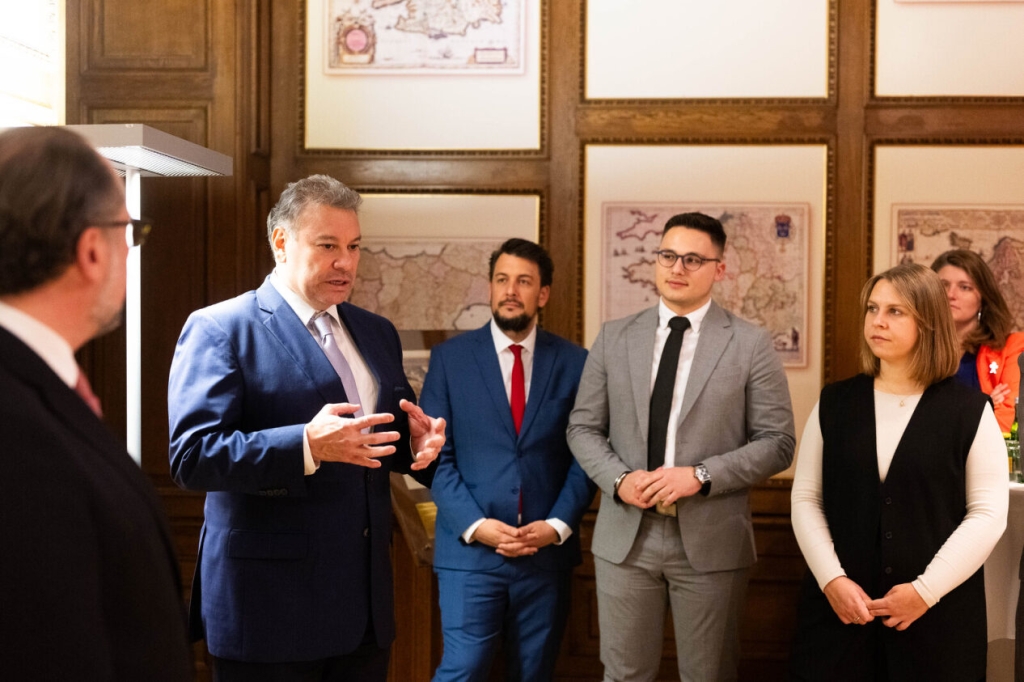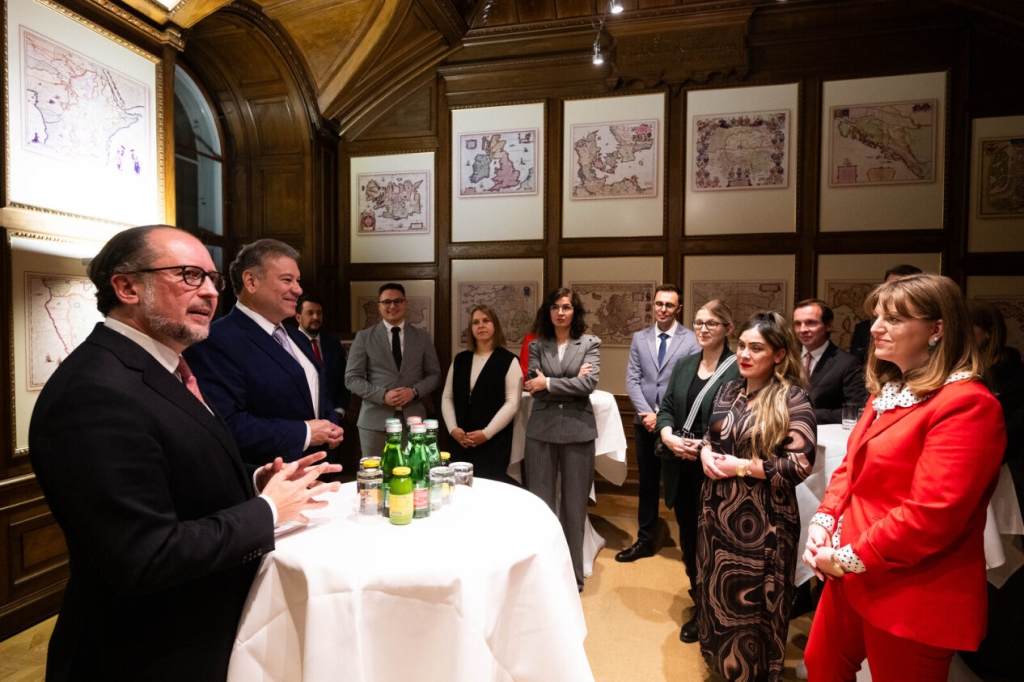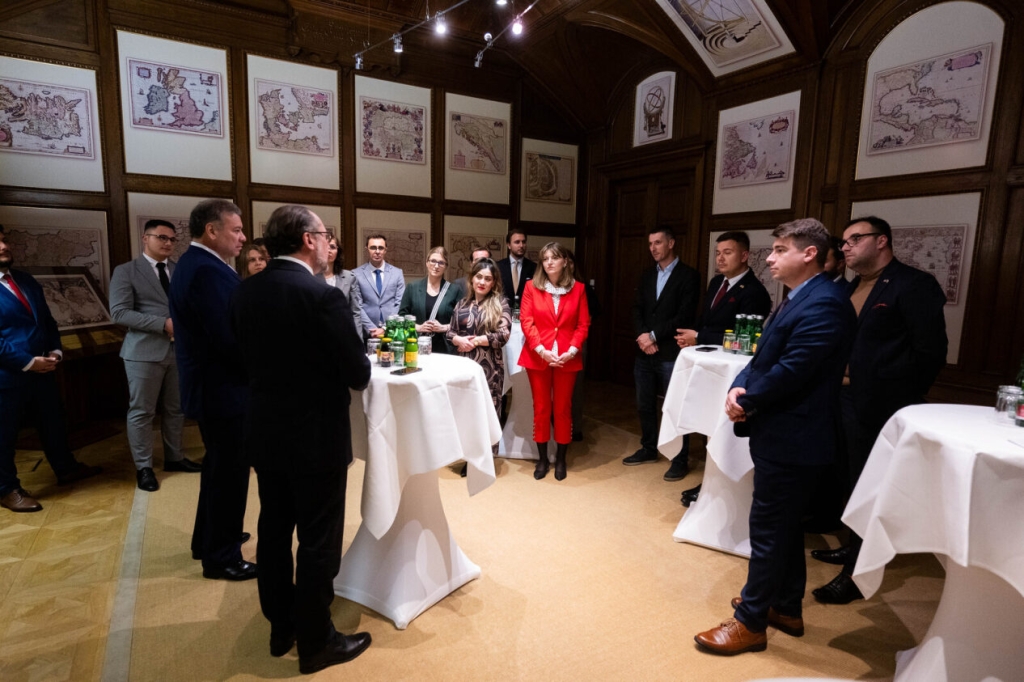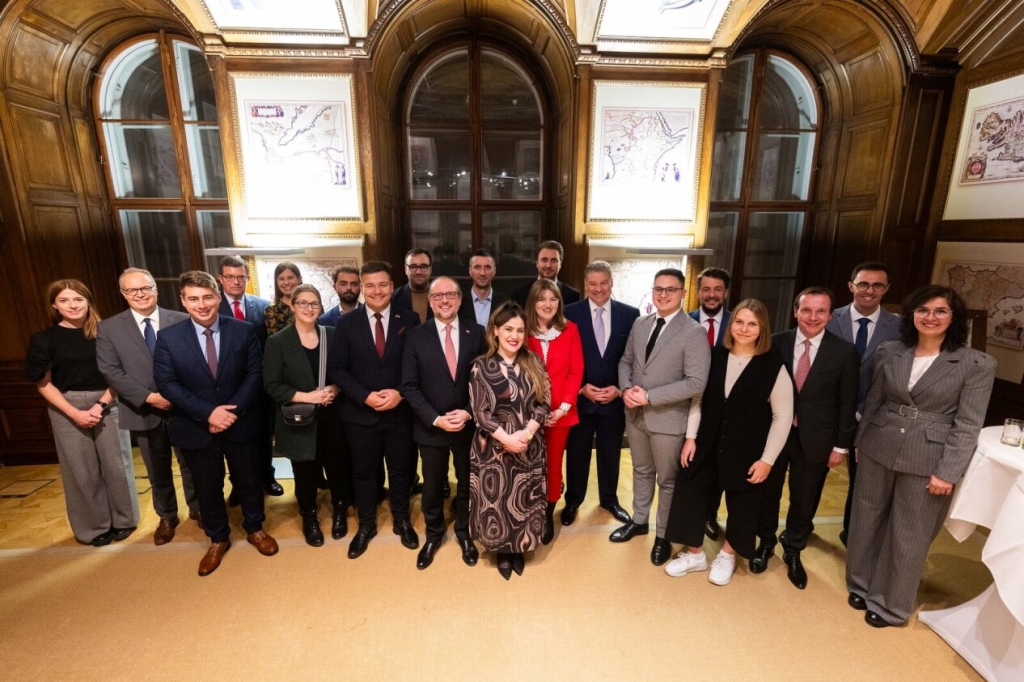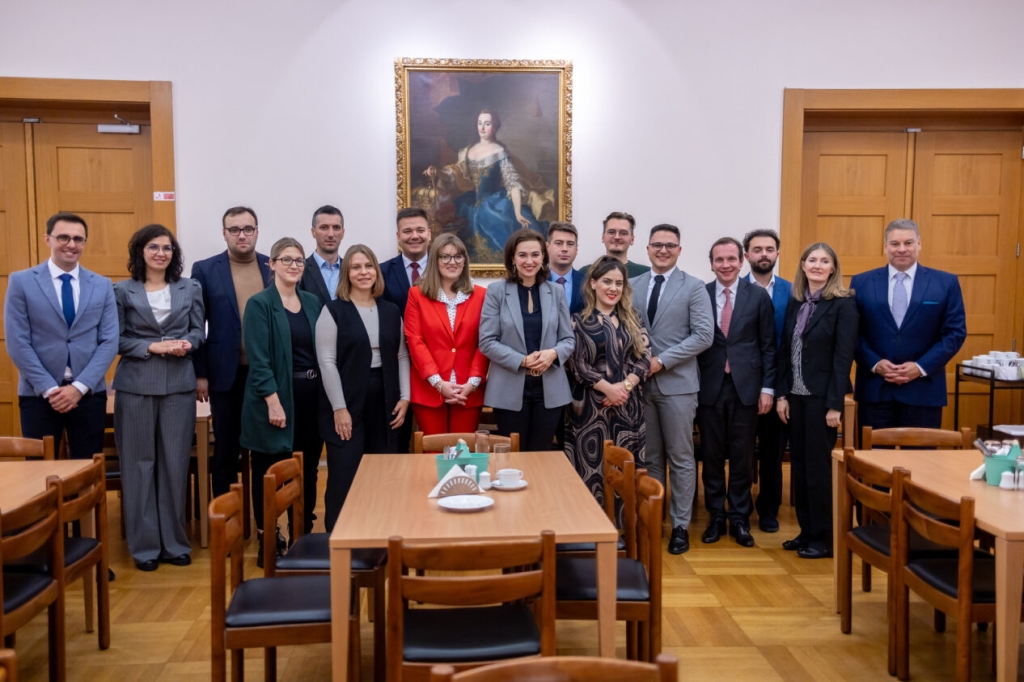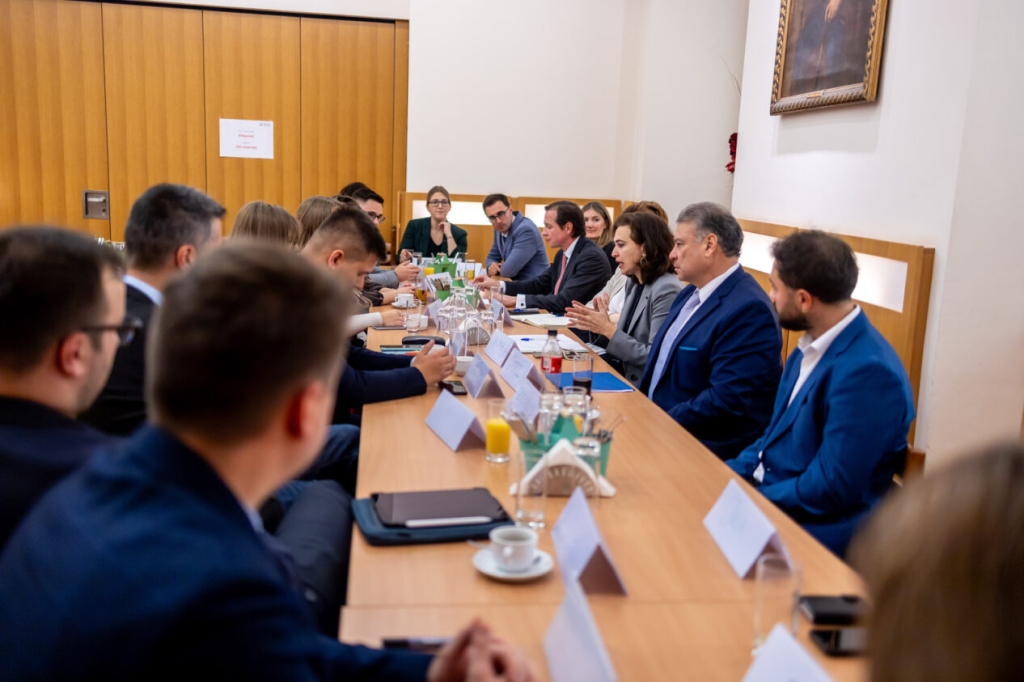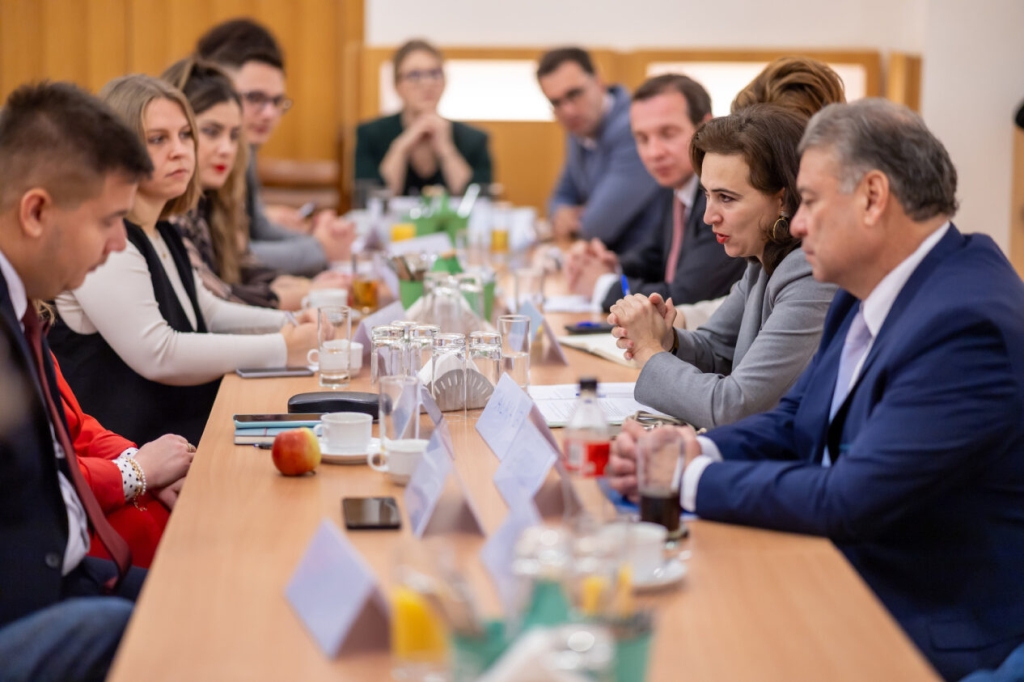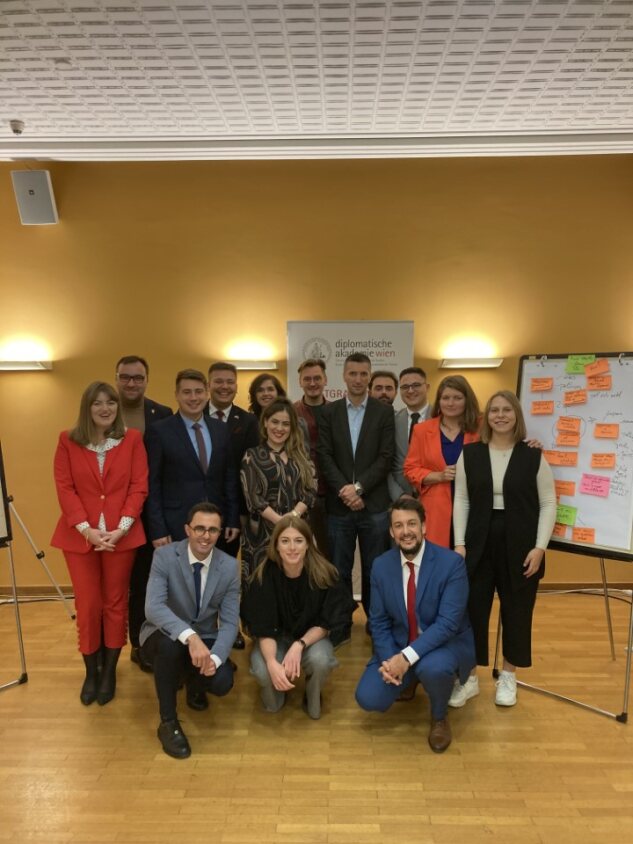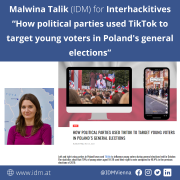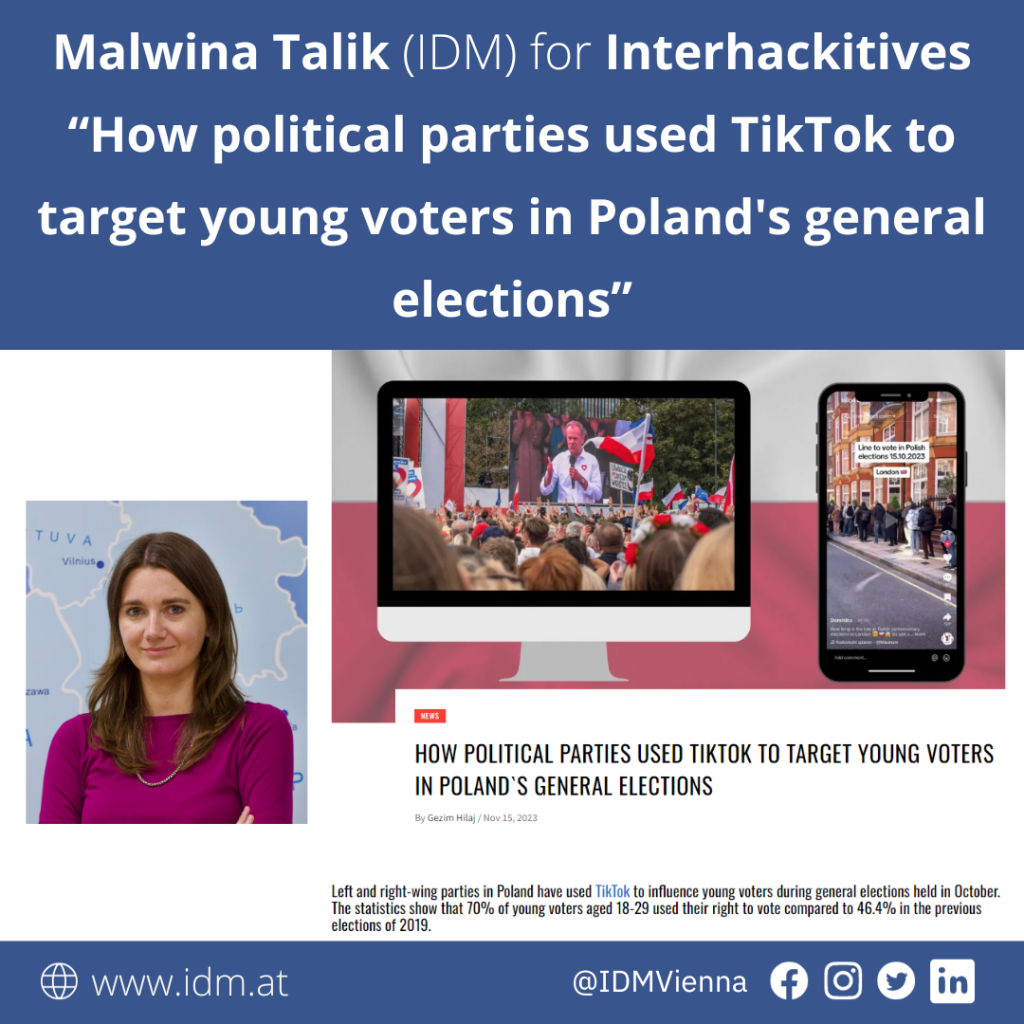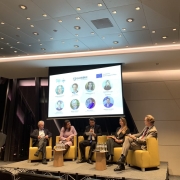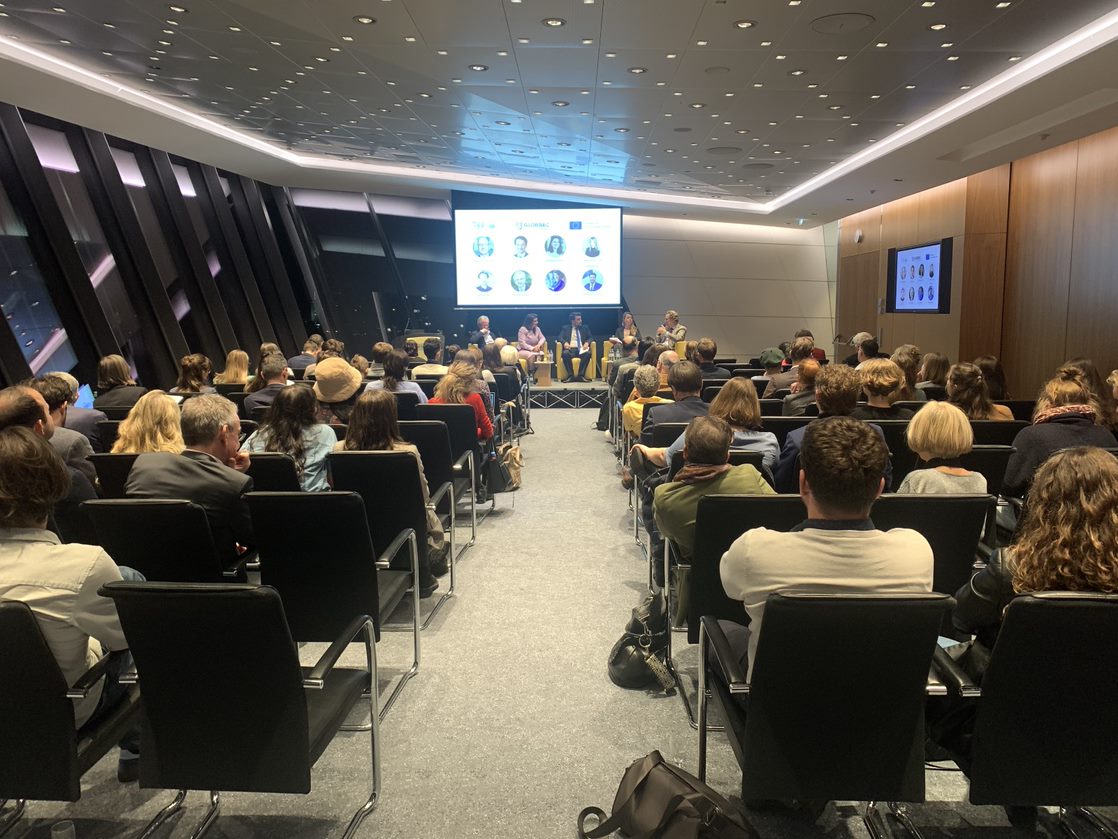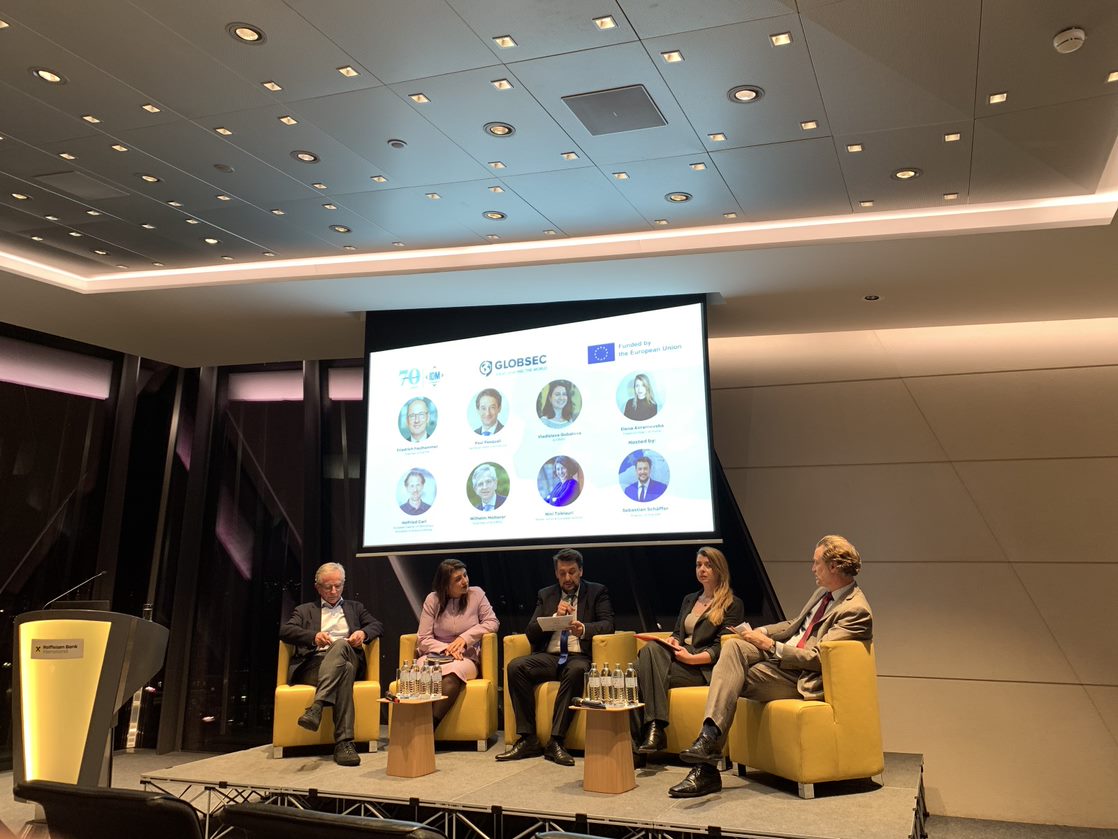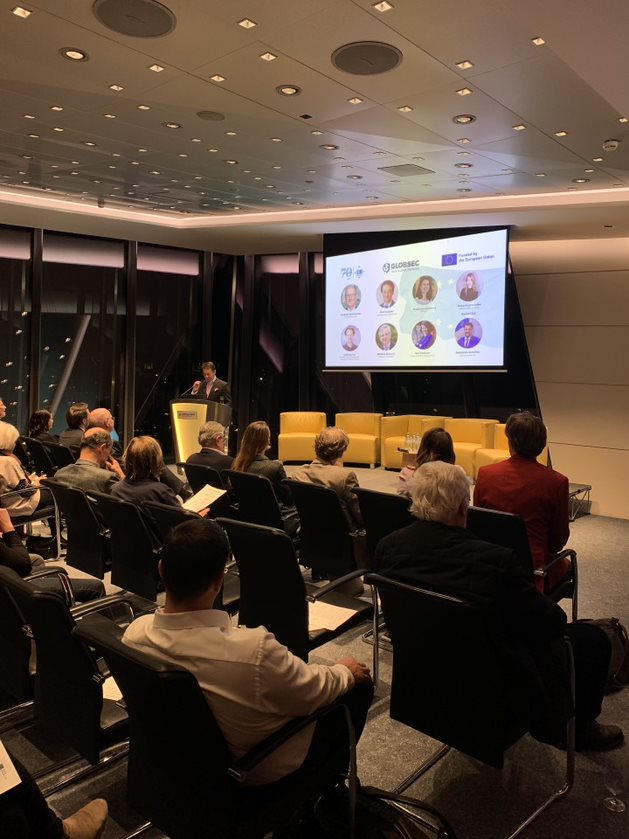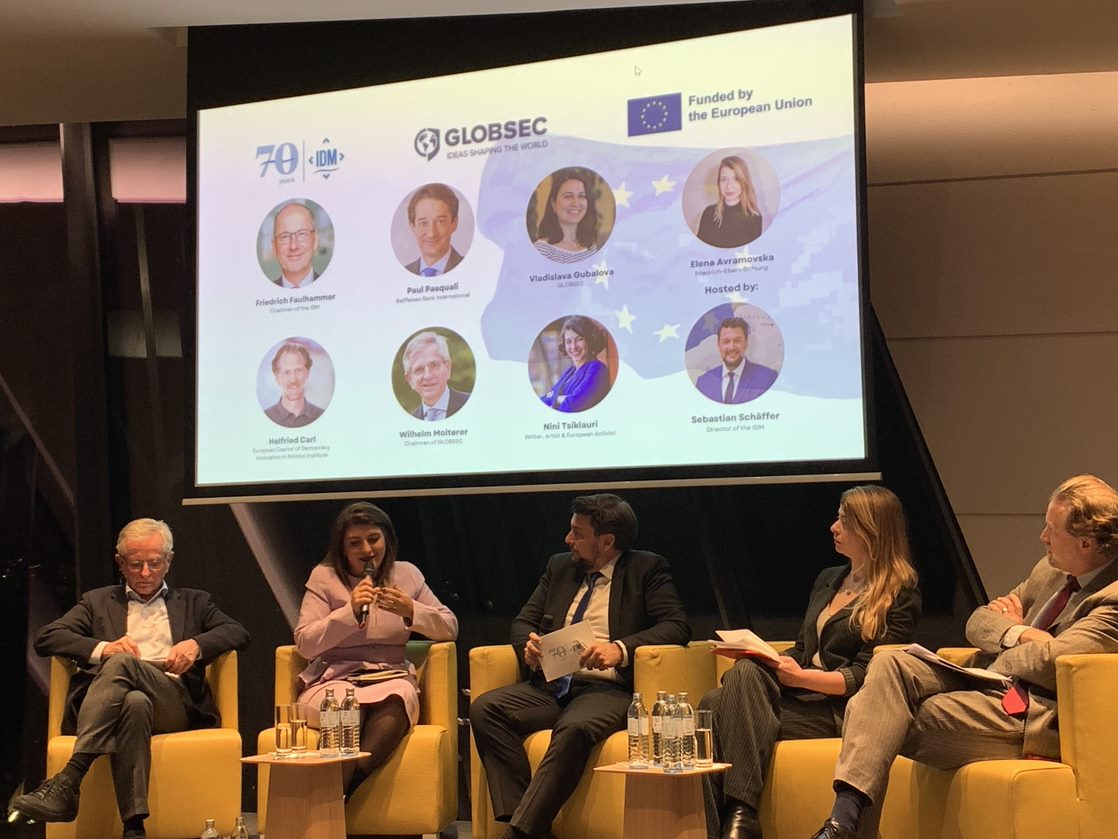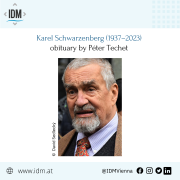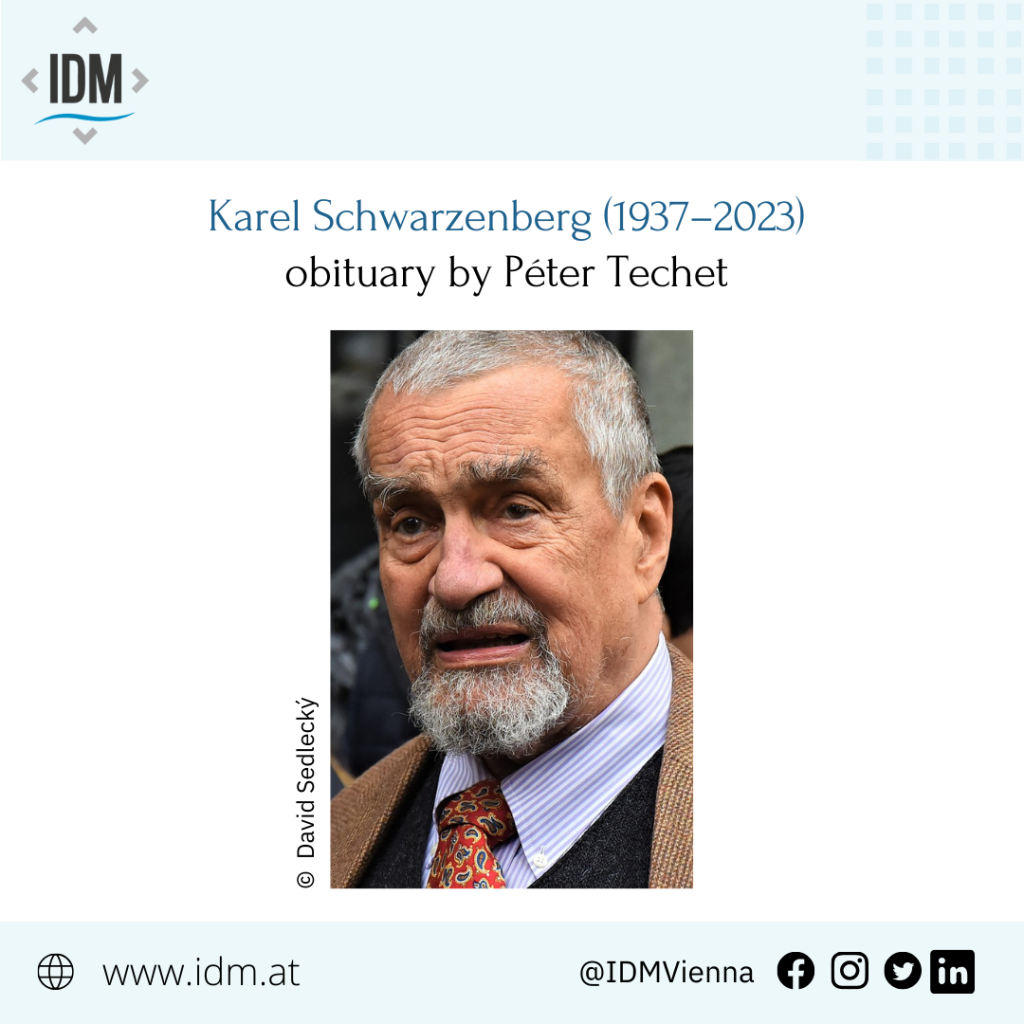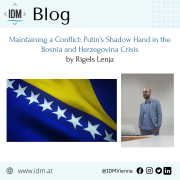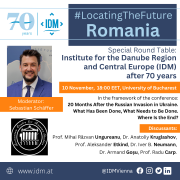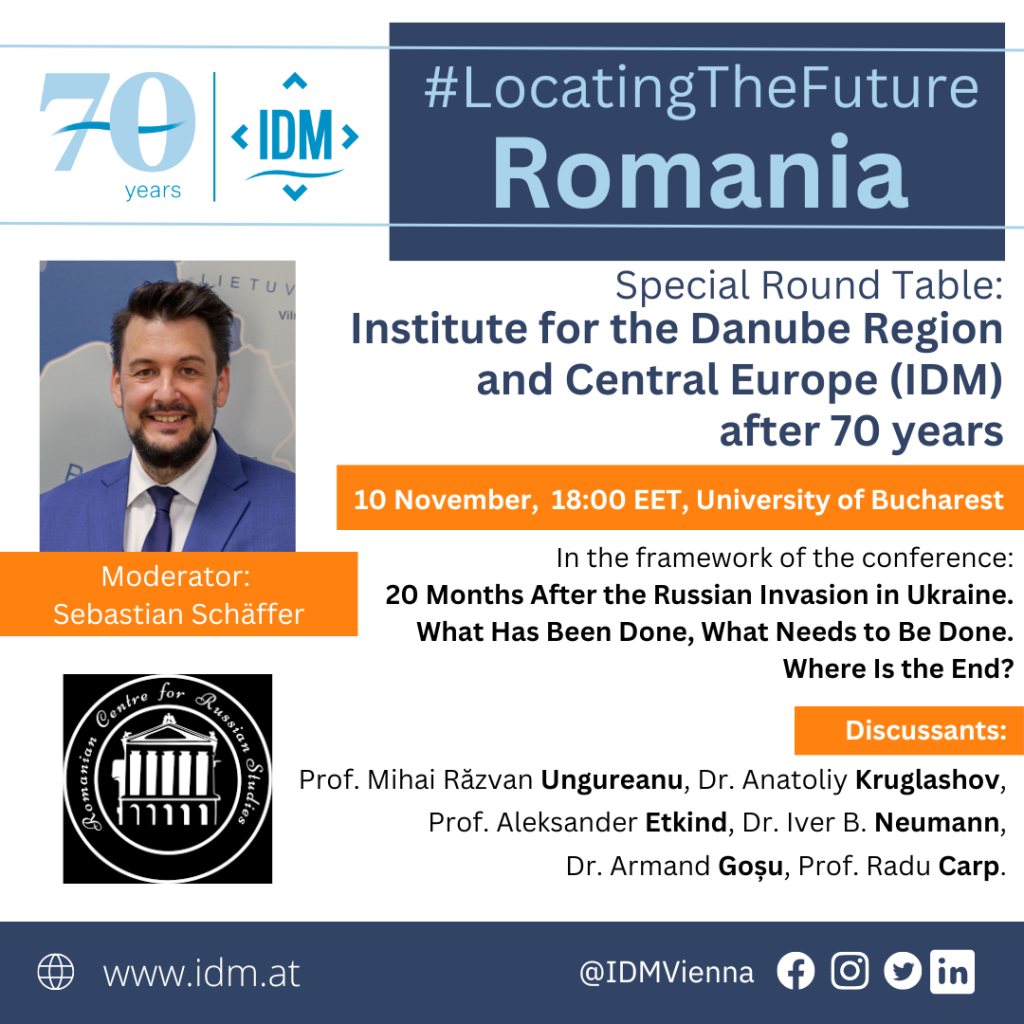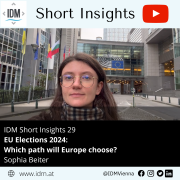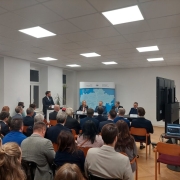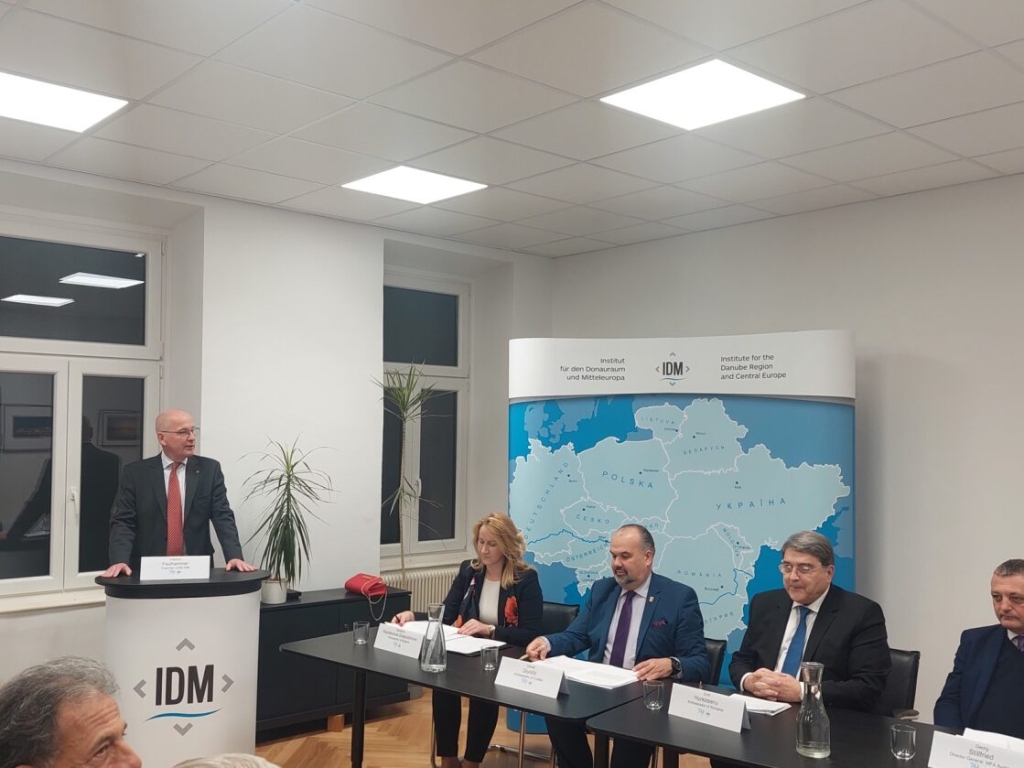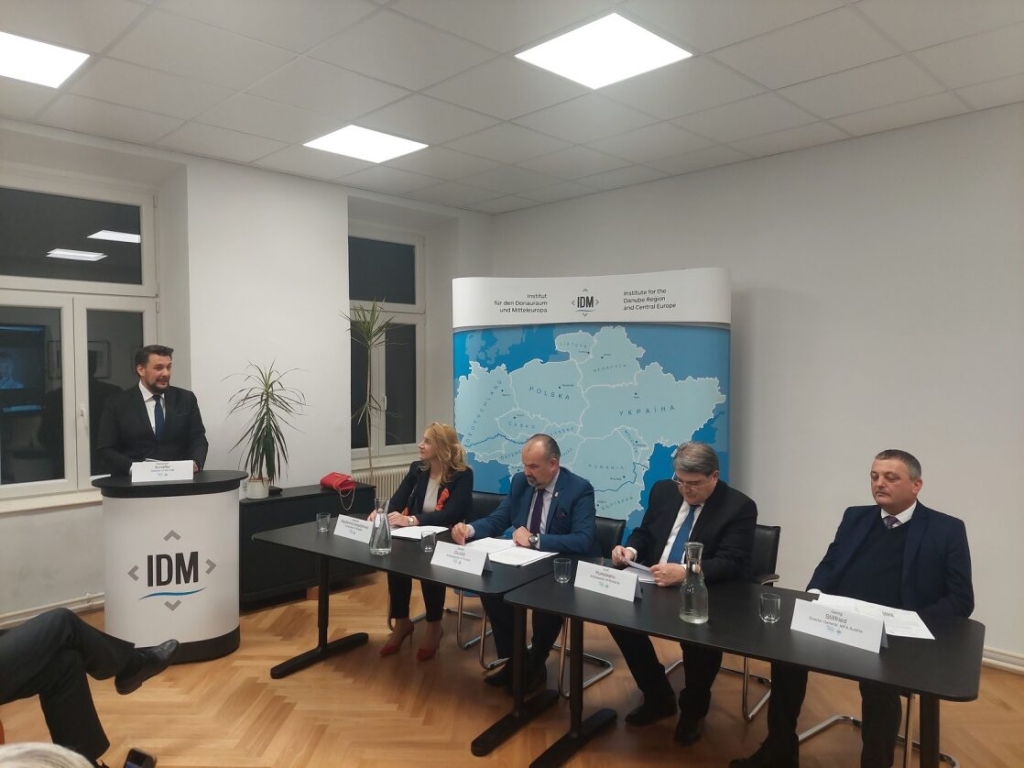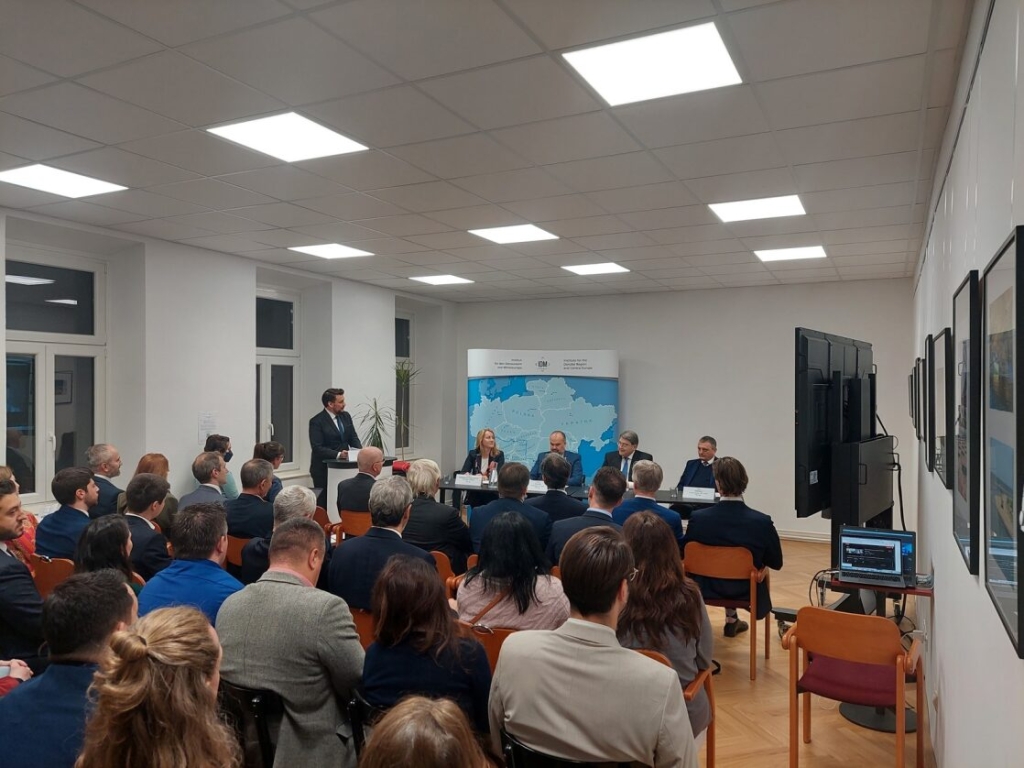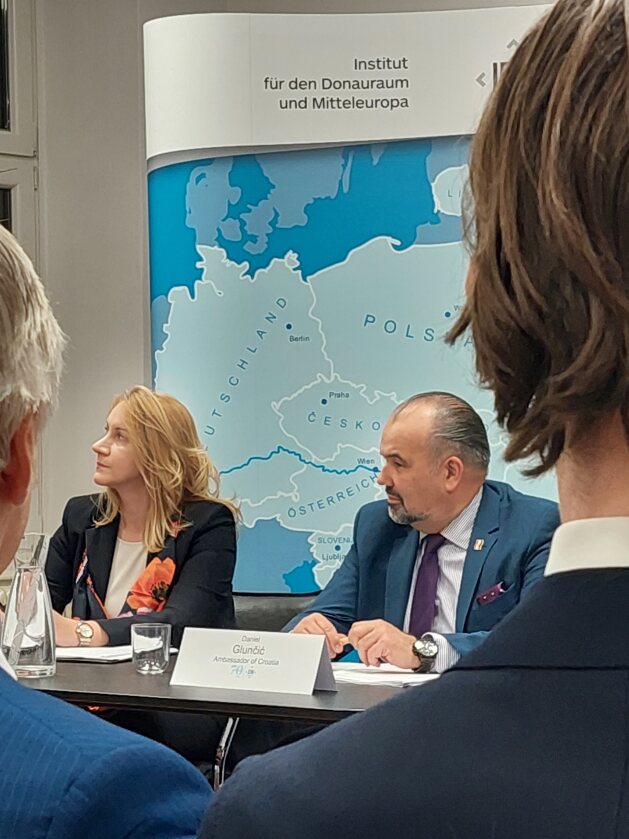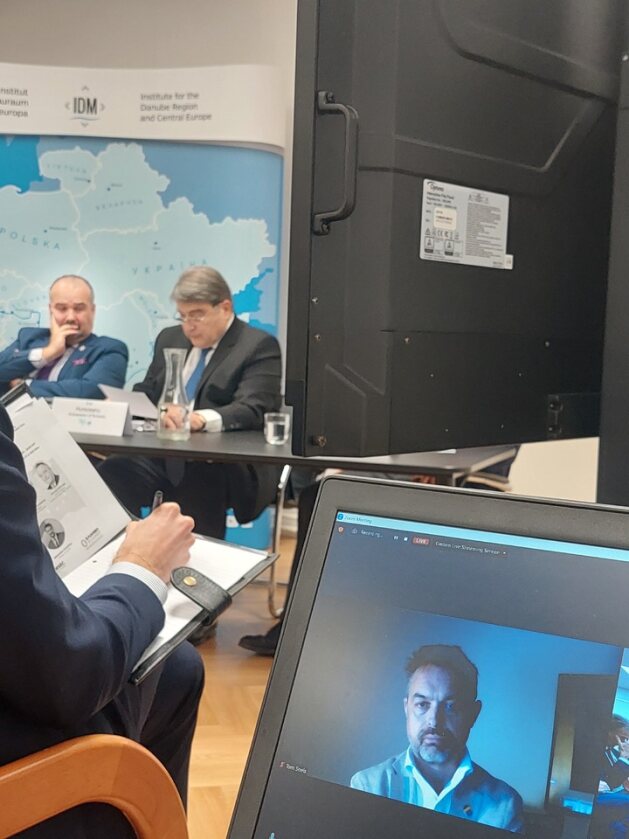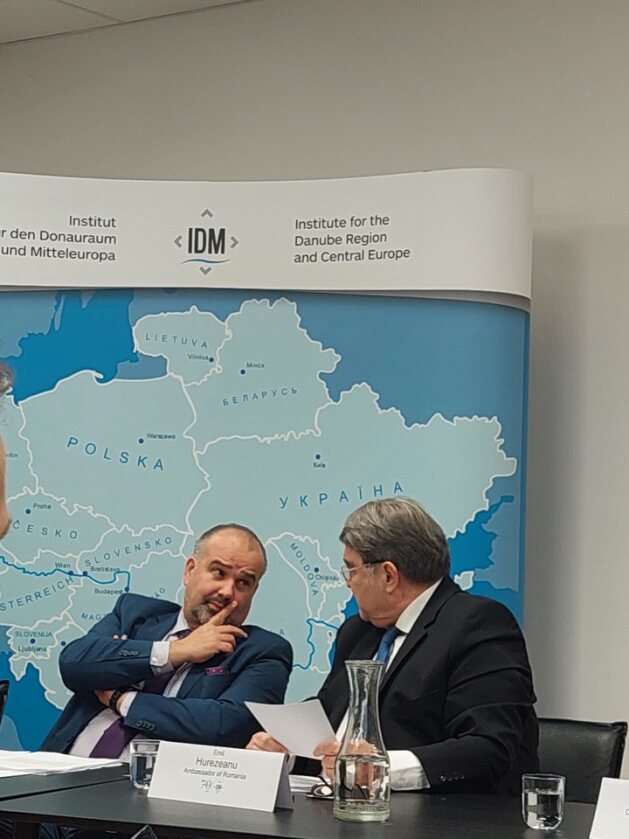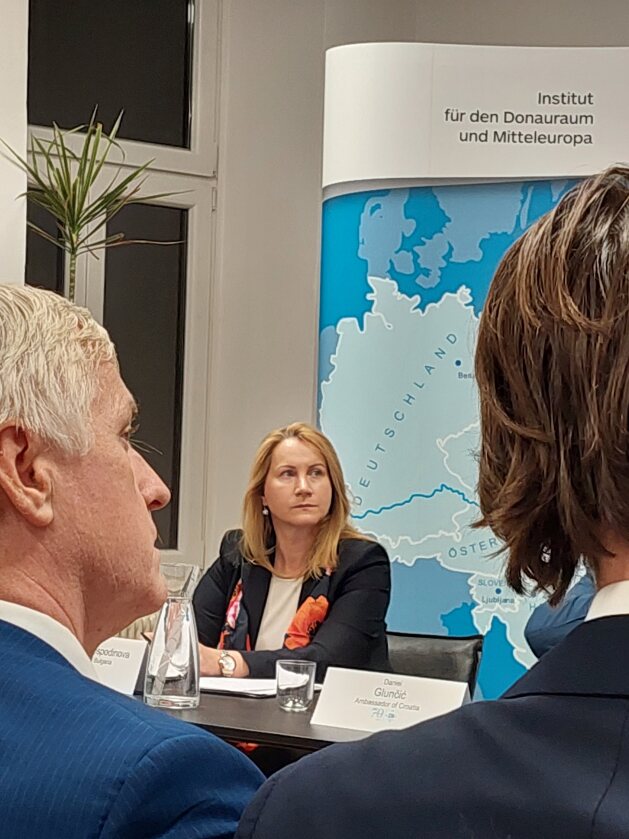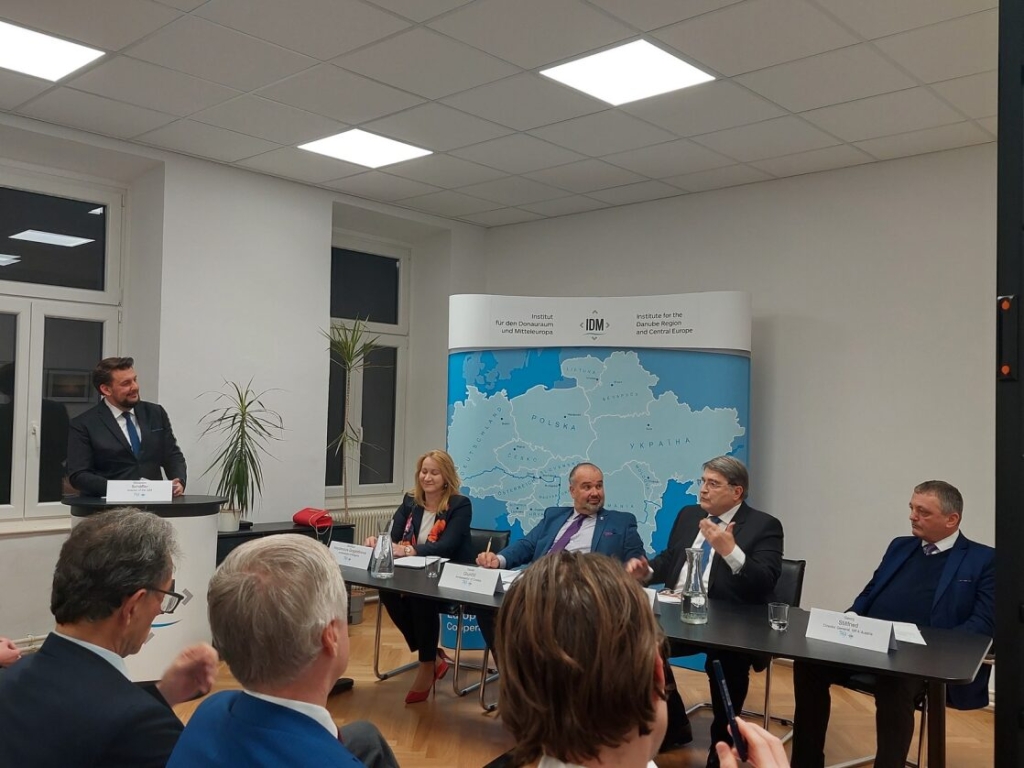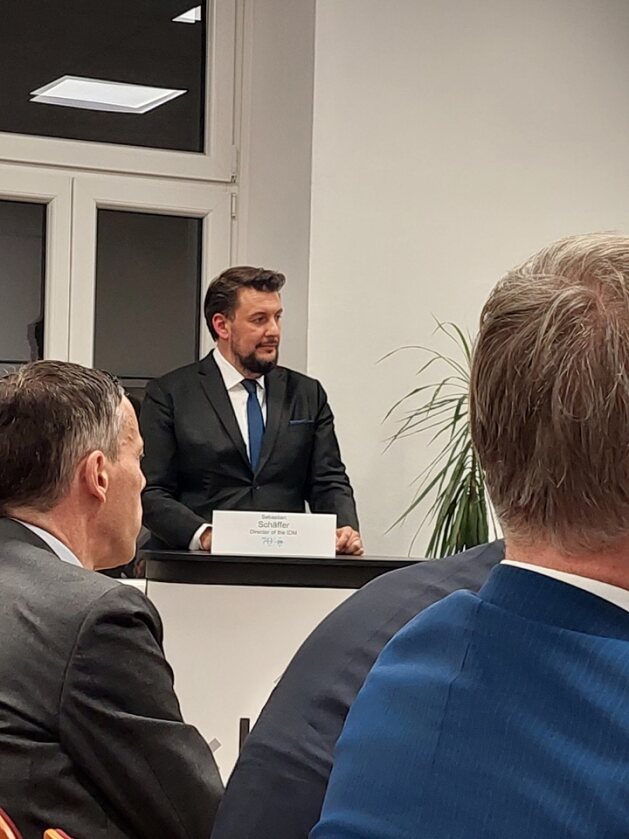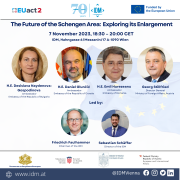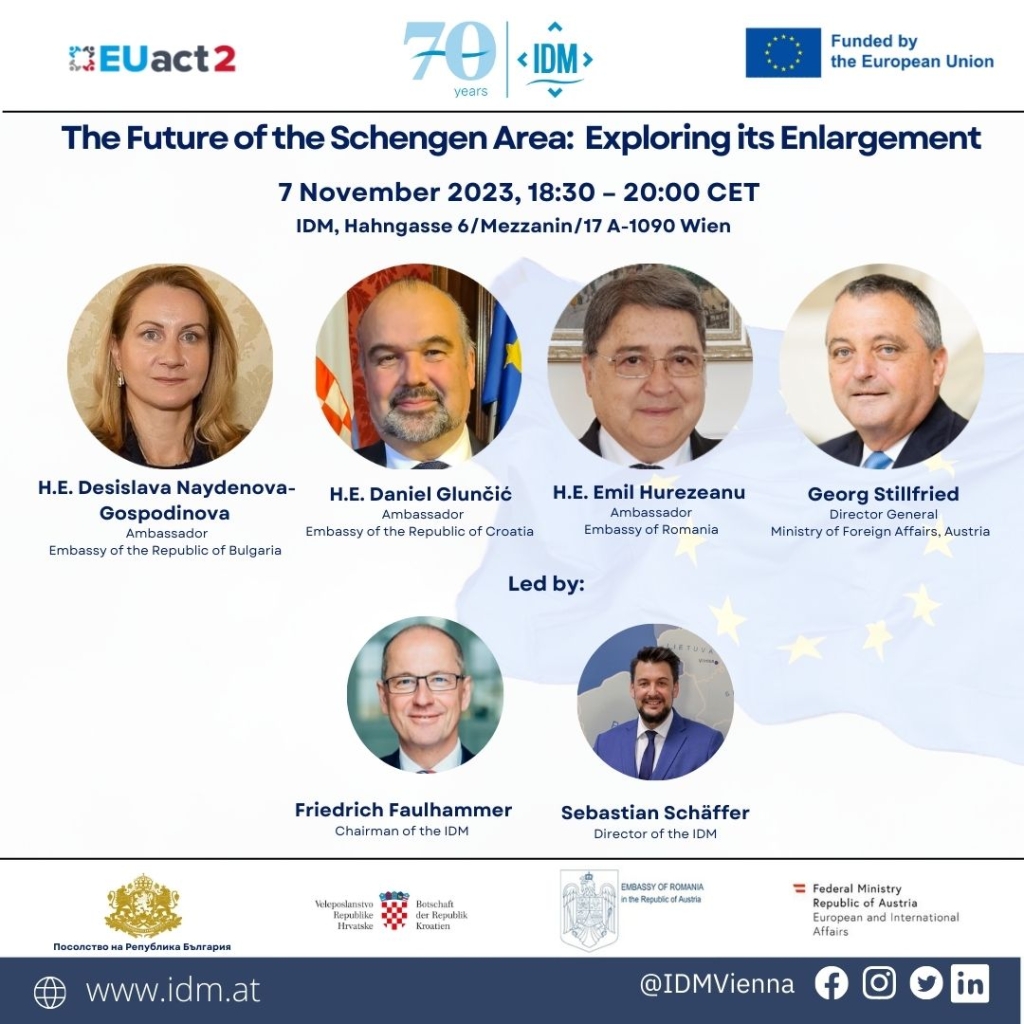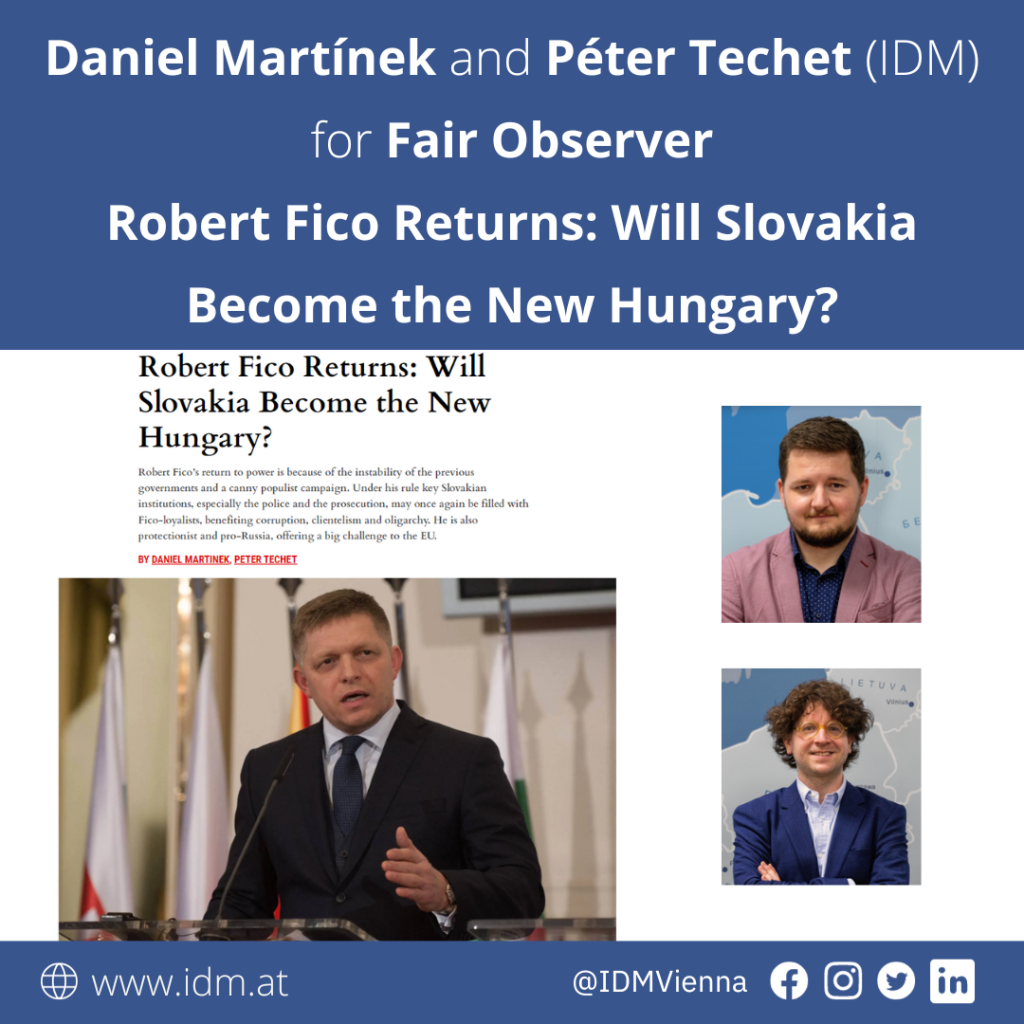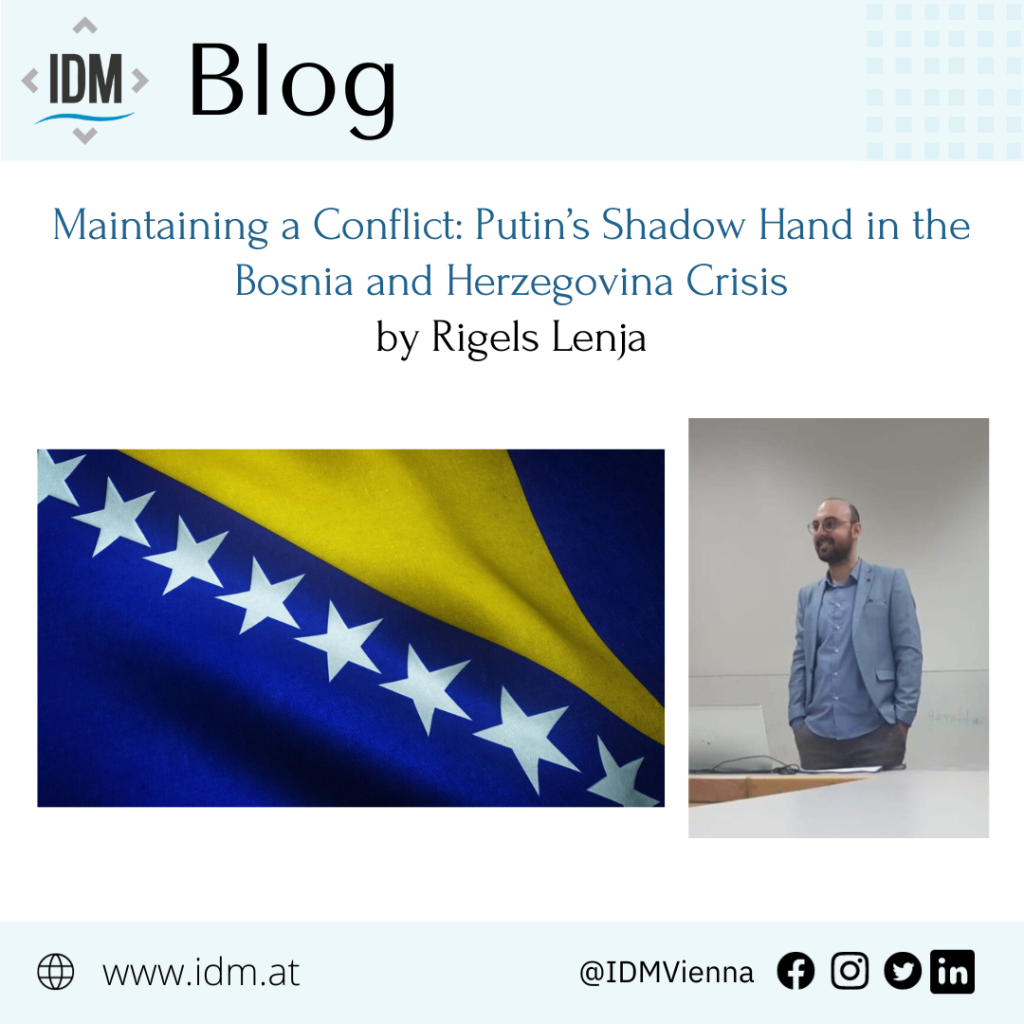
On 4 March 2022, NATO Secretary General Stoltenberg warned that Georgia, Moldova and Bosnia and Herzegovina (henceforth Bosnia) are the next countries vulnerable to Russia’s malign actions, following the war in Ukraine. Why Bosnia? What are Russia’s interests in Bosnia?
Bosnia was the first country in Europe to undergo genocide genocide since the Second World War, which is why the slightest crises in the country bring back memories of bloody conflict. In addition, the perpetrators of the genocide are portrayed as heroes heroes or publicly endorsed. Most of Bosnia’s unresolved problems are not caused by Russia, but are exploited by Russia for geopolitical interests in the Balkans and beyond.
Bosnia’s political architecture is extremely complex. All three main entities have uncompromising political desires: the Serbians are looking for independence, the Bosniaks are seeking a further centralization, and the Croats want to create a third entity. While the Dayton Peace Agreement of 1995 ended the bloody civil war that caused over 100,000 casualties, it left the country ungovernable and dysfunctional, frequently described as an ethnocracy. With two entities, three presidents in rotation (one Croat-Catholic, one Serbian-Orthodox and one Bosniak Muslim), 14 governments, 165 ministers, and dozens of hundreds of local authorities, there are too many conflicting interests to form a coherent political framework.
Russia’s staunchest ally in Bosnia and Europe is the president of Republika Srpska, hardline nationalist Milorad Dodik. In his opinion, Bosnia is an artificial state. Since the start of the Russian war in Ukraine in February 2022, Dodik is one of the few European leaders to have visited Moscow for a private audience with the Russian president Vladimir Putin, and to have endorsed Russia’s sham referendums in occupied parts of Ukraine. In January 2023, Dodik awarded Putin with the highest medal of honour. Due to his destabilizing actions, Dodik and the entire leadership of Republika Srpska were subject to sanctions and put on a blacklist by the USA.
Dodik shares many of the same ideologies as Putin: they both oppose NATO-expansion and what they call “West degenerative ideology” such as liberalism and LGBTQ rights, while favouring extreme nationalism and an autocratic style of governing. Putin is not the only authoritarian ally of Dodik, he has also built up good relations with Hungary’s Viktor Orban .
Because of Dodik’s veto, Bosnia is the only European country other than neighbouring Serbia not to have placed sanctions on Russia. To Putin, Bosnia is irrelevant, merely a playground to undermine NATO and the EU and to create further trouble and disruption for them. Russia was one of the Dayton signatories and even deployed troops on peacekeeping missions to Bosnia in the mid-1990s, but since Putin became president, Russian relations with the West have deteriorated. One of their favourite channels for expanding Russian influence is the UN’s veto power. The EU and the USA have played their card with have played their card with the High Representative for Bosnia, currently held by the former German Minister of Agriculture, Christian Schmidt, who has the final word on all matters. Meanwhile, in the aftermath of Putin’s famous speech in Munich in 2007, Russia supported Republika Srpska’s secession agenda, questioned Bosnia’s sovereignty, regarded the Hague Tribunal as illegitimate and vetoed the recognition of Srebrenica as genocide. At the UN Security Council on 11 May 2022, Russian Ambassador Vasily Nebenzya referred to Schmidt as an illegal High Representative, thereby playing the Dodik card.
Although Russia is the main spoiler in the Bosnian crisis, it has hardly exerted any economic or financial leverage. The EU is Bosnia’s main trading partner, Russia accounted for only 0.3% of exports and 1.6% of imports in 2022. For direct investment, Moscow ranked 9th out of the top 10 investors in Bosnia, accounting for less than 3% of total investment. Moscow’s ability to play a role in a country with virtually no economic tools is remarkable. Yet this is due to Moscow’s willingness to work with anyone without trying to change its actions or ideology. More recently, Russia has employed entities such as the Night Wolves, who were involved in the 2014 Crimea secession, and were reported to be present in Bosnia. In 2018, it was reported that Russian mercenaries were training paramilitary forces in Bosnia on behalf of Dodik, and in 2022 it was suspected that the Wagner Group had established a recruiting office in Balkan.
With the USA debacle in Iraq and Afghanistan, and EU attention diverted by multiple internal crises, Dodik seized the moment in December 2021 to take a further step towards his desire to secede from Bosnia by unilaterally withdrawing Republika Srpska from the tax, defence, health and judicial systems. Every action of secession that Dodik takes is vetoed by the High Representative, the only person able to stop Dodik’s path to secession.
Lacking the funds to back the secession of Banja Luka, Russia has exploited every alternative to maintain the crisis in Bosnia at no cost, and it appears to be continuing this trend. Russia has managed to maintain a dysfunctional state in the middle of Europe with minimal capital investment. In holding Bosnia in a permanent crisis, Putin’s main aim is to demonstrate the weakness and unreliability of the USA and the EU in preserving peace and stability in its own backyard. Putin is trying to position Russia as rule-maker rather than rule-follower and sees opportunity whenever a crisis occurs; in the case of Bosnia, he is a rule-breaker. Nonetheless, it was not Putin who triggered the dysfunction, corruption or democratic backsliding in the first place.
The Russian aggression in Ukraine, along with Russia’s malicious actions of interfering in the local and national elections of Western democracy, as well as using the internet for a misinformation campaign to provoke further division, have made the US and the EU better understand Russian agendas and tactics. If the EU pays more attention to the Bosnian crisis, it could close the Russian channels of interference. However, this depends entirely on the general outcome of the war in Ukraine and further enlargement of the EU in the so-called Western Balkans. Although Russia is far from challenging the EU directly, it is pursuing a realistic and opportunistic scheme to undermine the EU via the weakest members or, in the Bosnian case, via the accession candidates. One of the ways to stop Russia meddling in Bosnian affairs is further integration into the EU, as well as a clear path towards full membership.
Rigels Lenja is a Ph.D. student at the Institute of Eastern and Southeastern European History at the Ludwig Maximilian University of Munich.

